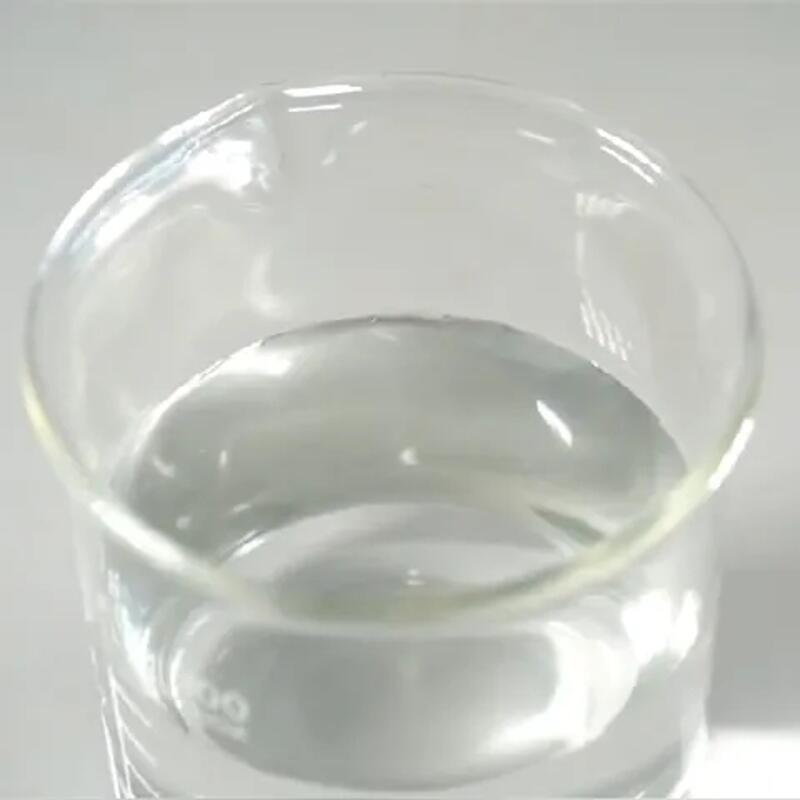-
Categories
-
Pharmaceutical Intermediates
-
Active Pharmaceutical Ingredients
-
Food Additives
- Industrial Coatings
- Agrochemicals
- Dyes and Pigments
- Surfactant
- Flavors and Fragrances
- Chemical Reagents
- Catalyst and Auxiliary
- Natural Products
- Inorganic Chemistry
-
Organic Chemistry
-
Biochemical Engineering
- Analytical Chemistry
-
Cosmetic Ingredient
- Water Treatment Chemical
-
Pharmaceutical Intermediates
Promotion
ECHEMI Mall
Wholesale
Weekly Price
Exhibition
News
-
Trade Service
The form of abnormal preoperative liver function test: retrospective case analysis of the patient, a 39-year-old male, 183 cm tall and 80 kg in weight, who injured the left anterior cruciate ligament due to skiing, and planned to undergo left anterior cruciate ligament repair
.
He had a history of hypertension and was treated with hydrochlorothiazide
.
Surgical history: Right inguinal hernia repair was performed under inhalation general anesthesia one year ago
.
Social history included occasional alcohol use and no history of drug use
.
The vital signs are as follows: blood pressure 140/90 mmHg; heart rate 88 beats/min; respiration 12 beats/min; body temperature normal
.
The rest of the physical examination showed no obvious positive findings
.
The orthopaedic surgeon ordered a series of laboratory tests, including a complete blood count, coagulation, blood electrolytes, and liver function
.
Aspartate aminotransferase (AST) 65 IU/L (normal range, 10-34 IU/L) and alanine amin-otransferase (ALT) 55 IU/L (normal range, 8-37 IU/L) Except for IU/L), the rest of the laboratory test results were within the normal range
.
Total bilirubin and alkaline phosphatase levels and international normalized ratios (INRs) were within normal ranges
.
Due to abnormal liver function results, the anesthesiologist refused to perform anesthesia in the outpatient surgery center and suggested further improvement of the examination
.
Discussion Due to the lack of relevant prospective studies, asymptomatic abnormal liver function tests in patients before surgery present anesthesiologists in a dilemma when assessing patients' perioperative liver risk
.
Preoperative assessment of the risk of postoperative hepatic impairment requires consideration not only of the degree of abnormal liver function tests and the presence of active inflammatory and biliary disease, but also of the surgical procedure itself
.
For asymptomatic patients with abnormal liver function tests, the primary consideration is why this test was ordered in the first place
.
Indiscriminate laboratory tests reveal elevated liver function in asymptomatic patients, leading to delayed surgery
.
Because the implementation of anesthesia may lead to poor postoperative liver function and secondary disease and death in patients
.
Abnormal liver function tests, including ALT, AST, and alkaline phosphatase, are seen in only a small subset of the population
.
Among people with mental illness (alcohol and illicit drug use are major factors) the rate is as high as 36%
.
Less than 1% of asymptomatic patients have clinically significant liver dysfunction
.
Therefore, it is difficult to obtain diagnostically meaningful findings on the basis of laboratory results alone
.
Instead, a specific history and physical examination for symptoms and signs of active hepatobiliary disease are most reasonable in these patients
.
These include: right upper quadrant pain or tenderness, yellowing of the sclera, pruritus, fatigue, anorexia, nausea, or vomiting
.
Erythema in cirrhosis is often evident
.
However, the patient should still be asked for a history of chronic hepatitis, Wilson disease, hyperpigmentation, diabetes, and blood transfusions
.
All drugs, vitamins, and herbal remedies should be considered as potentially hepatotoxic, and patients should be questioned about the frequency and pattern of alcohol intake
.
Finally, the patient should also be asked about specific medical history, including: illicit drug use, tattoos, raw seafood, and sexual activity
.
If a detailed history and physical examination fail to reveal the cause of the abnormal liver function, it is reasonable to assume that previous abnormal findings are false positives and need to be reviewed
.
Mildly elevated liver function (within twice the normal value) does not require further testing before anesthesia and/or surgery
.
If liver function exceeds this range, detailed analysis of each specific abnormality is required
.
In addition, abnormal liver function test results in healthy people also suggest subclinical acute progression or chronic disease, the former such as viral or toxin-mediated hepatitis, and the latter such as chronic hepatitis
.
Abnormal ALT and AST at the same time often indicate liver cell damage
.
Elevated ALT was significantly more indicative of viral hepatitis than AST.
Elevated AST was significantly more indicative of alcoholic liver injury than ALT
.
Elevated alkaline phosphatase and serum r-glutamyltransferase suggest hepatobiliary disease, especially extrahepatic bile duct obstruction or intrahepatic cholestasis
.
Further evaluation of abnormal liver function should include an assessment of synthetic function, which requires examination of serum bilirubin, albumin, and prothrombin time (expressed by INR), which are sensitive indicators of liver synthetic function due to impaired synthesis of important coagulation factors , prothrombin usually changes within 24 hours of hepatobiliary injury
.
At present, there are no prospective, randomized controlled trials evaluating perioperative anesthesia and surgical risk in patients with asymptomatic elevated liver function.
The recommended methods for such patients are shown in Figure 14.
1
.
Considering the perioperative morbidity and mortality in patients with acute hepatitis, most literature recommends that elective surgery should be delayed until abnormal liver function improves
.
Patients with steatosis or fatty liver may also develop liver failure after surgery, especially after major abdominal surgery
.
In addition, patients with chronic hepatitis should be evaluated for signs of liver synthetic dysfunction before elective surgery
.
If surgery cannot be delayed or cancelled, intraoperative hepatic vascular perfusion should be maintained to avoid factors that can accelerate liver failure and/or hepatic encephalopathy
.
Finally, the risk of postoperative development of liver failure in patients with abnormal liver function and clinical manifestations of cirrhosis depends on the stage of cirrhosis and the type of surgery
.
Preoperative risk assessment in patients with cirrhosis usually uses the Child-Tur-cotte-Pugh scoring system (Table 14.
1), occasionally in combination with the model for end-stage liver disease (MELD, Table 14.
2)
.
Elective surgery is contraindicated in Child-Turcotte-Pugh class C patients
.
In addition, elective surgery is best avoided in cirrhotic patients with elevated INR, hypoalbuminemia, preoperative infection, or the presence of encephalopathy
.
Table 14.
1 Modified Child-Turcotte-Pugh scoring system Modified Child-Turcotte-Pugh scoring parameters 123 Albumin (g/L)>3518~35<28Prothrombin time PT prolongation<44~6>6International normalized ratio<1.
71.
7~2.
3>2.
3 Bilirubin (mg/dl)<22~3>3 Ascites No mild, moderate severe hepatic encephalopathy No I, II grade III, IV grade *Child A grade 5~6 points, B grade 7 to 9 points, C grade 10 to 15 points* In cholestatic disease (eg, primary biliary cirrhosis), bilirubin levels are proportional to liver damage and should be supplemented
.
Based on these conditions, bilirubin levels <4 mg/dl were assigned 1 point, 4-10 mg/dl were assigned 2 points, and >10 mg/dl was assigned 3 points
.
Table 14.
2 MELD score MELD = 3.
78 [In serum bilirubin (mg/dl)] + 11.
2 [In INR] + 9.
57 [mg/dl] + 6.
43 In addition, the following is the revision of the MELD score: • The highest score is 40, all Values over 40 were scored as 40 • Serum creatinine level was usually scored as 4 if the patient had been on dialysis twice in the last 7 days • All values less than 1 were scored as 1 Note: INR: International Normalized Ratio; MELD: Model of End-Stage Liver Disease However, surgery In itself may be the most important risk factor for postoperative liver dysfunction
.
Abdominal surgery appears to significantly reduce overall liver blood flow, especially in cirrhotic patients undergoing hepatectomy for hepatocellular carcinoma
.
Cardiothoracic surgery is associated with high mortality in patients with pre-existing liver dysfunction
.
Cardiopulmonary bypass can exacerbate pre-existing hepatic dysfunction through multiple mechanisms, including hepatic arterial and portal hypoperfusion, low cardiac output syndrome, micro or large emboli, production of cytokines or oxygen free radicals, and Effects of vasoactive and anesthetic drugs
.
In evaluating this patient, although this patient had mildly elevated liver function tests, the risk of anterior cruciate ligament surgery itself leading to postoperative liver failure is significant
.
The degree of liver function elevation in this patient suggested that the risk of postoperative liver dysfunction was minimal
.
Elevated liver function may be associated with alcohol intake, which is associated with the effect of hydrochlorothiazide on cholestasis
.
Review of liver function can first rule out whether the disease is in the advanced stage
.
Notes/Guan Yong's typography/Routou key information 1.
Anesthesia in asymptomatic patients with elevated liver function may or may not be at severe perioperative risk
.
2.
Unequivocal abnormal liver function test results suggest the influence of preoperative medication, alcohol consumption, and active inflammation
.
3.
Preoperative liver function testing should only be considered in patients with evidence of liver dysfunction and physical examination
.
4.
Whether to perform surgery or anesthesia in patients with abnormal liver function test results should be decided according to the operation itself and the degree of liver function changes
.
Question 01 Which of the following serum levels is associated with perioperative morbidity: A .
ALT 55 IU/LB .
Bilirubin 3.
6mg/dlC .
INR 1.
6D .
AST 90 IU/LE .
Alkaline phosphatase 42mg/dl Answer: D02 The patient undergoing total hip replacement surgery has cirrhotic erythema and mild ascites.
Preoperative laboratory tests include serum protein level of 2.
7g/L, INR 2.
8, and serum bilirubin level of 4mg/dl.
The next most appropriate action for this patient Should be: A.
Therapeutic puncture B.
Preoperative plasma infusion C.
Delayed surgery D.
Infusion of 5% albumin E.
Avoidance of inhaled general anesthetics Answer: C03 Which of the following for patients with preoperative chronic active hepatitis The following procedures were associated with postoperative liver dysfunction: A.
Pneumonectomy B.
Partial colectomy C.
Bilateral total knee arthroplasty D.
Carotid endarterectomy E.
Total thyroidectomy Answer: BEND







